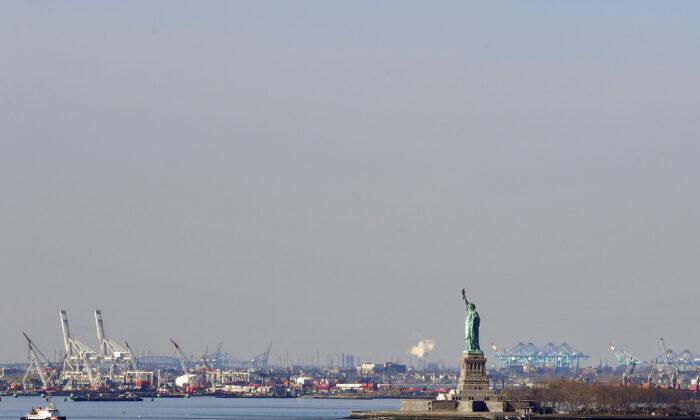China could gain the most if the United States were to end its 100-year-old Jones Act.
China aims to aggressively control world trade by dominating how goods are shipped around the globe, as well as by making other countries dependent on its goods. Because 90 percent of world trade goes by ship, it seeks to command maritime trade by building the most ships, carrying the most cargo, and operating the most important ports.
That intersects with the three fleets that are vital to America: Our military Navy; the international merchant fleet; and our domestic (Jones Act) ships. While China is consolidating power in the first two areas, it’s blocked in the third by the Jones Act, which requires that domestic shipping within the United States must be conducted by ships that are built, owned, and crewed by Americans.
China’s global shipping dominance stems from its massive system of government subsidies and state-owned enterprises, mingled with the military and combined with cheap and even slave labor. It’s not free enterprise, and opposing it isn’t anti-free market.
“China’s navy is viewed as posing a major challenge to the U.S. Navy’s ability to achieve and maintain wartime control of blue-water ocean areas in the Western Pacific—the first such challenge the U.S. Navy has faced since the end of the Cold War.”
The United States discontinued its shipbuilding subsidies decades ago.
But what foreign interests can’t do is engage in internal shipping that moves within or between U.S. ports, nor along intracoastal waterways, the Mississippi and other rivers, nor the Great Lakes. These involve 40,000 domestic U.S. vessels, which are covered by the Jones Act.
If allowed, China and other countries could take over the construction and operation of this internal fleet, using their vast subsidies. In essence, they would be buying power over our economy.
- China loaned billions to Sri Lanka to build a new Indian Ocean port—then repossessed it when Sri Lanka defaulted
- The loan-then-repo strategy was repeated with Pakistan, where $10 billion bought control of Gwadar’s port astride Arabian Sea oil routes
- For half a billion dollars, China leased the port in Darwin, Australia, for 99 years
- China bought into the largest port in Africa—Djibouti, on the African Horn at the Red Sea entrance to the Suez Canal
- For $920 million, China took over the second-largest container port in Brazil
Repeal of the Jones Act would allow another foreign takeover of a vital sector of America’s economy. That would reward the anti-free enterprise maritime subsidies and would erode America’s economic power while growing our dependency on foreign interests.
The argument for repeal is that we could save a few bucks because China and others would offer lower shipping rates, for now at least. We’ve heard that argument before and seen it hollow out our economy. It also weakened America’s strength in championing freedom and human rights, which China will not do. The Jones Act is about much more than money.


Friends Read Free